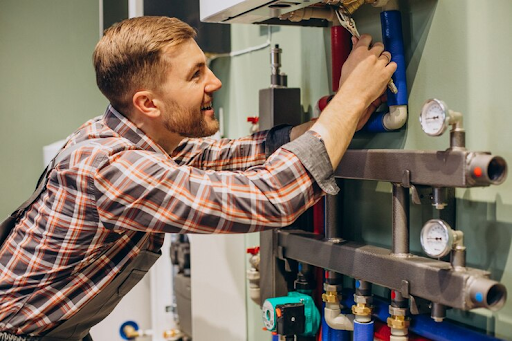Understanding the Role of Gas Boiler Controls in Efficient Heating Systems

Gas boilers are a central component of many home and industrial heating systems, providing a reliable and efficient source of warmth. Integral to their operation are gas boiler controls, which play a crucial role in maintaining efficiency, safety, and comfort. In this article, we’ll delve into the various types of gas boiler controls and their significance in inefficient heating systems.
What are Gas Boiler Controls?
Gas boiler controls are devices and mechanisms that manage and regulate the operation of a gas boiler. These controls ensure the boiler operates safely, efficiently, and in accordance with the desired settings for temperature and timing. They encompass a range of components, each designed to perform specific functions that contribute to the overall performance of the heating system.
Key Components of Gas Boiler Controls:
- Thermostats
- Pressure Relief Valves
- Ignition Systems
- Modulating Controls
- Safety Controls
Key Components and Their Functions
1. Thermostats
Thermostats are perhaps the most familiar type of boiler control. They regulate the temperature of the heating system by turning the boiler on and off to maintain the set temperature. Modern thermostats often come with programmable features, allowing users to set different temperatures for different times of the day, optimising energy usage and comfort.
2. Pressure Relief Valves
Pressure relief valves are safety devices designed to prevent excessive pressure buildup within the boiler. If the pressure exceeds safe levels, the valve releases the excess pressure, preventing potential damage to the boiler and ensuring safe operation.
3. Ignition Systems
Ignition systems control the lighting of the boiler’s burner. Modern boilers typically use electronic ignition systems, which are more reliable and efficient than older pilot light systems. These systems ensure the burner ignites only when needed, reducing energy consumption and improving safety.
4. Modulating Controls
Modulating controls adjust the burner’s output to match the heating demand. Instead of the boiler operating at full capacity all the time, modulating controls allow it to operate at a lower output when less heat is needed. This leads to improved efficiency and reduced fuel consumption.
5. Safety Controls
Safety controls include various mechanisms designed to shut down the boiler in case of unsafe operating conditions. These can include flame sensors, which ensure the burner is operating correctly, and high-limit controls, which shut down the boiler if the temperature exceeds safe levels.
Benefits of Advanced Gas Boiler Controls
1. Enhanced Efficiency
Advanced gas boiler controls optimise the operation of the boiler, ensuring it runs only when needed and at the correct output level. This reduces energy consumption and lowers heating costs.
2. Improved Safety
Safety controls and mechanisms like pressure relief valves and flame sensors prevent accidents and damage, ensuring the boiler operates safely at all times.
3. Greater Comfort
Programmable thermostats and modulating controls maintain a consistent and comfortable indoor temperature, adapting to the occupants’ needs and preferences.
4. Longevity of the Boiler
By preventing excessive pressure, overheating, and other unsafe conditions, gas boiler controls extend the lifespan of the boiler, reducing the need for costly repairs and replacements.
5. Environmental Benefits
Efficient boiler operation translates to reduced fuel consumption, which in turn lowers greenhouse gas emissions, making gas boiler controls an environmentally friendly choice.
Conclusion
Gas boiler controls are vital for the efficient, safe, and comfortable operation of heating systems. By understanding the different types of controls and their functions, homeowners and facility managers can make informed decisions to optimise their heating systems. Advanced controls not only enhance efficiency and comfort but also contribute to the longevity of the boiler and environmental sustainability. Investing in high-quality gas boiler controls is a wise decision that pays off in improved performance and reduced operational costs.



